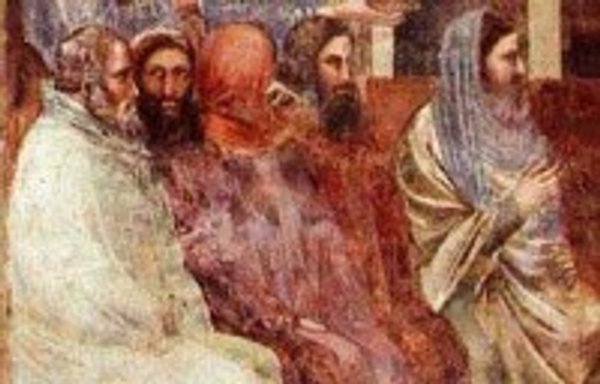● The term “Gnostic” originates from the Greek word “gnosis” meaning knowledge.
► A Gnostic is therefore a person who acquires a special knowledge and lives in accordance with it. In this respect, the term “gnosis” does not carry any negative connotation.
► Some of the early Fathers of the Church such as Clement of Alexandria and St Irenaeus speak about ‘gnosis’ in the sense of the knowledge of Jesus Christ that we acquire through faith: “the true gnosis” – writes St Irenaeus – “is the doctrine of the Apostles” (Against Heresies IV, 33, 8).
● The term “Gnostic” acquired a negative meaning when these very early Fathers applied it to designate certain prominent heretics prevalent between the 2nd and 4th centuries.
► St Irenaeus was the first one to use it in this sense in order to refer to the heresy of Simon the Samaritan (Acts 8:9-24). He mentions that Simon’s followers spread throughout Alexandria, Asia Minor and Rome with the result that "a multitude of Gnostics have sprung up, and have been manifested like mushrooms growing out of the ground" (Against Heresies I, 29,1). These in turn, St Irenaeus continued, gave rise to the followers of Valentinus who are the ones he tackles in a more direct manner.
► He explains the abundance and diversity of sects by saying that "numbers of them – indeed, we may say all – desire themselves to be teachers, and to break off from the particular heresy in which they have been involved. Forming one set of doctrines out of a totally different system of opinions, and then again others from others, they insist upon teaching something new, declaring themselves the inventors of any sort of opinion which they may have been able to call into existence" (Against Heresies, I, 28, 1)
● From Irenaeus' information and from that of the other Fathers who also had to combat these heresies (especially St Hippolytus of Rome and St Epiphany of Salamina), we can see that there was such a proliferation of splinter groups (Simonians, Nicolaites, Ophites, Naassenes, Sethians, Peratae, Basilidians, Carpocratines, Valentinians, Marcosians…) falling under the heading “gnostic”, that we can only apply this term in a most generic manner.
► From the around the forty or so “gnostic” heretical works discovered in 1945 in Nag Hammadi (upper Egypt) we gain a similar impression; each work contains its own distinct heretical direction.
● Of the varieties described above, the best known are the Valentinian Gnostics, who are also the ones who exercised the most influence.
► Acting within the Church they were like "a beast poised to spring" says St Irenaeus.
► They had the same Sacred Scriptures as the Church, but they interpreted them differently. The true God, according to them, was not the Creator of the Old Testament; they distinguished several Christs from among the beings of the heavenly world (Aeons).
► They considered that salvation is obtained:
-by the knowledge of oneself as a divine spark enclosed in matter;
-that the redemption of Christ consists in awakening ourselves to this knowledge;
-and that only spiritual men (pneumatiokoi) are destined for salvation.
► The elitist character of the sect, and its undervaluing of the created world, make up, among other traits, the mindset of these heretics, the most significant representatives of the "gnostics".
